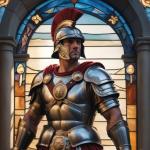Metropolitan Kallistos Ware, known not only for his leadership in the Eastern Orthodox Church but also for his books, was the Kermit Zarley lecturer this year. His two topics were Prayer and the Philokalia, during which he discussed the Jesus Prayer, and then he lectured on Eastern Orthodoxy and Evangelicalism and how we need one another. The lectures were recorded and will be available on Ancient Faith Radio beginning this weekend. Added: I have to add my deepest appreciation to Brad Nassif for carrying the load for pulling this event together. Thanks so much Brad.
Here is Kallistos Ware sitting in my office, and he may or may not have my Fasting book on his lap.
 So how do we need one another?
So how do we need one another?
I would recommend Bishop Ware’s book The Orthodox Church: New Edition as the clearest explanation of the Eastern Church.
He talked through three topics — Church and Eucharist, Scripture and Tradition, and the Work of Christ. On Church and Eucharist he though evangelicals could do better by developing a more robust ecclesiology, on the need for a verbal and a visual, and for an appreciation of the material — in other words, a more robust incarnational theology. He also discussed the sermon — and said the Orthodox could do much, much better both in what his preached and how much attention is given to it.
On Scripture and Tradition, he surprised me: Kallistos came close to suggesting that Church Tradition should be nothing more than the unfolding of Scripture and should not conflict with sola scriptura. He was challenged in the question time to make sense of that idea with beliefs on Mary, etc, and his response was that Marian beliefs are for the inner life of the Church and not about what was preached. But he also observed the Eastern fathers were totally committed to Scripture and that the Orthodox could be much better if they took the personal character of Scripture more seriously and if they read their Bibles more.
Finally on Christ’s work he developed some emphases — evangelicals on that Christ did his work “for” us while the Orthodox emphasizes “in” us; penal substitution over against theosis. And he developed the idea that atonement in the Orthodox church is about a variety of images, no one dominating, instead of one idea dominating (which is the case with much of evangelicalism). I was happy to hear this because of how I developed the atonement images in my A Community Called Atonement: Living Theology. I would agree with Ware on this one.













